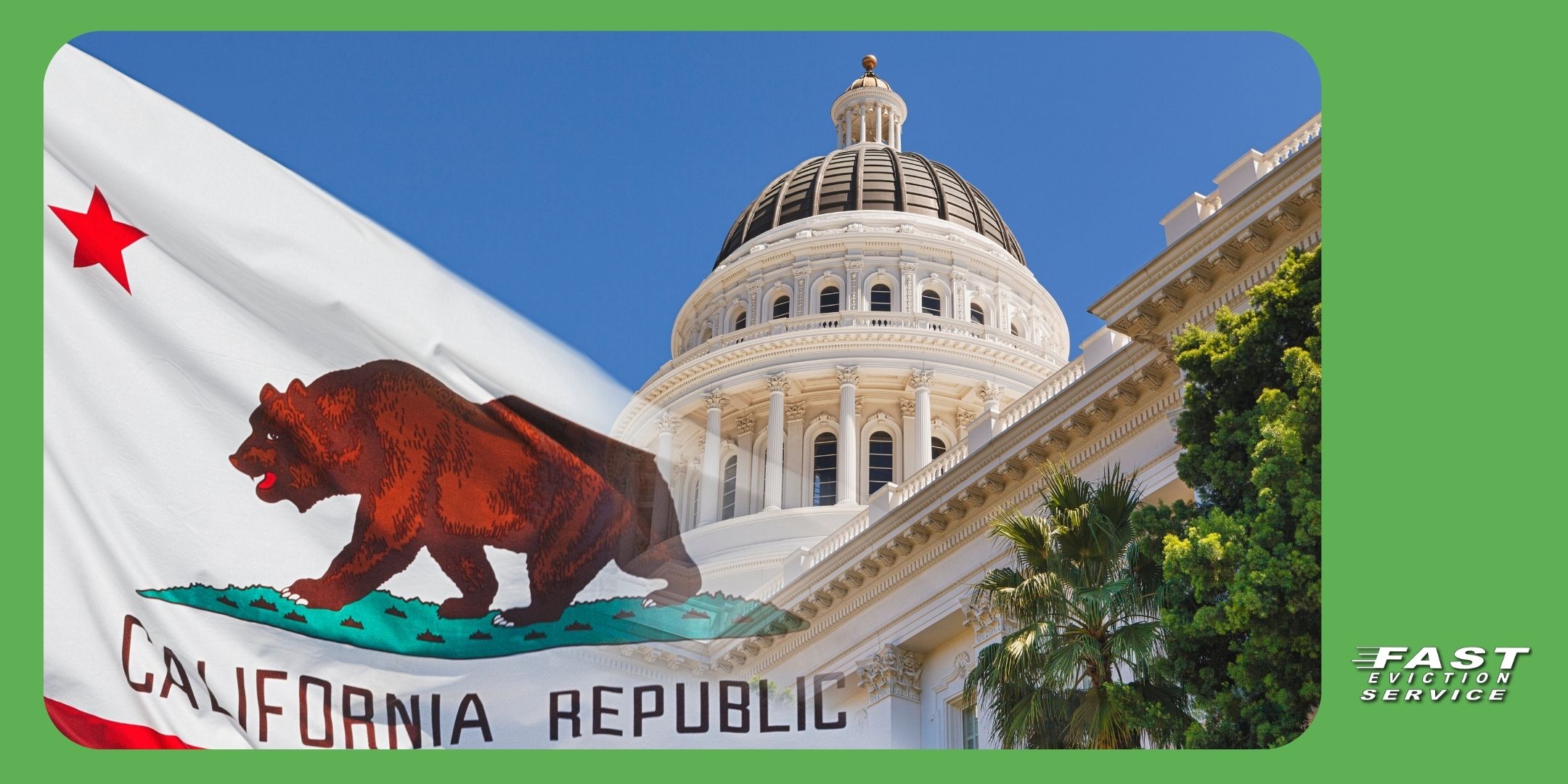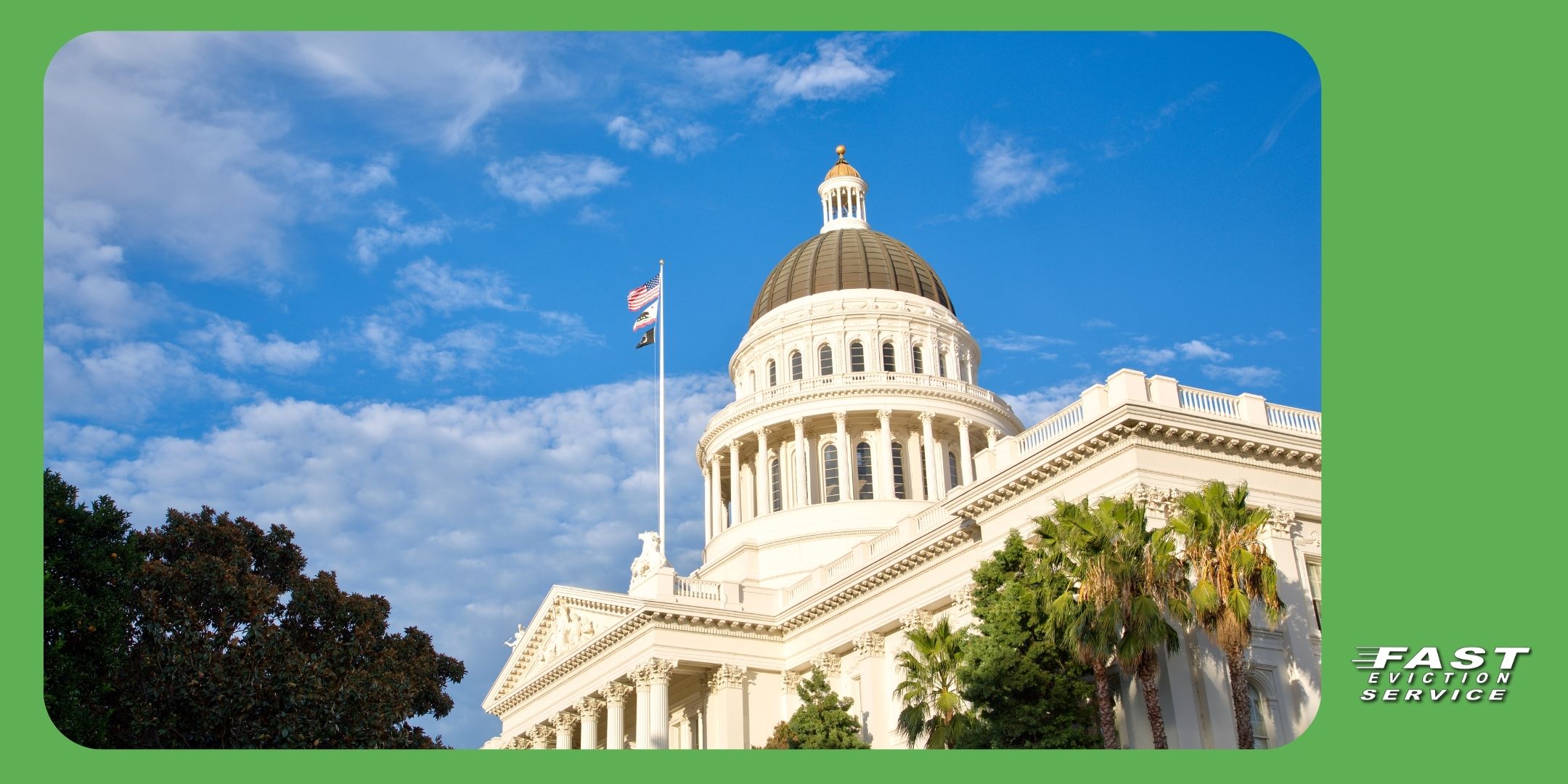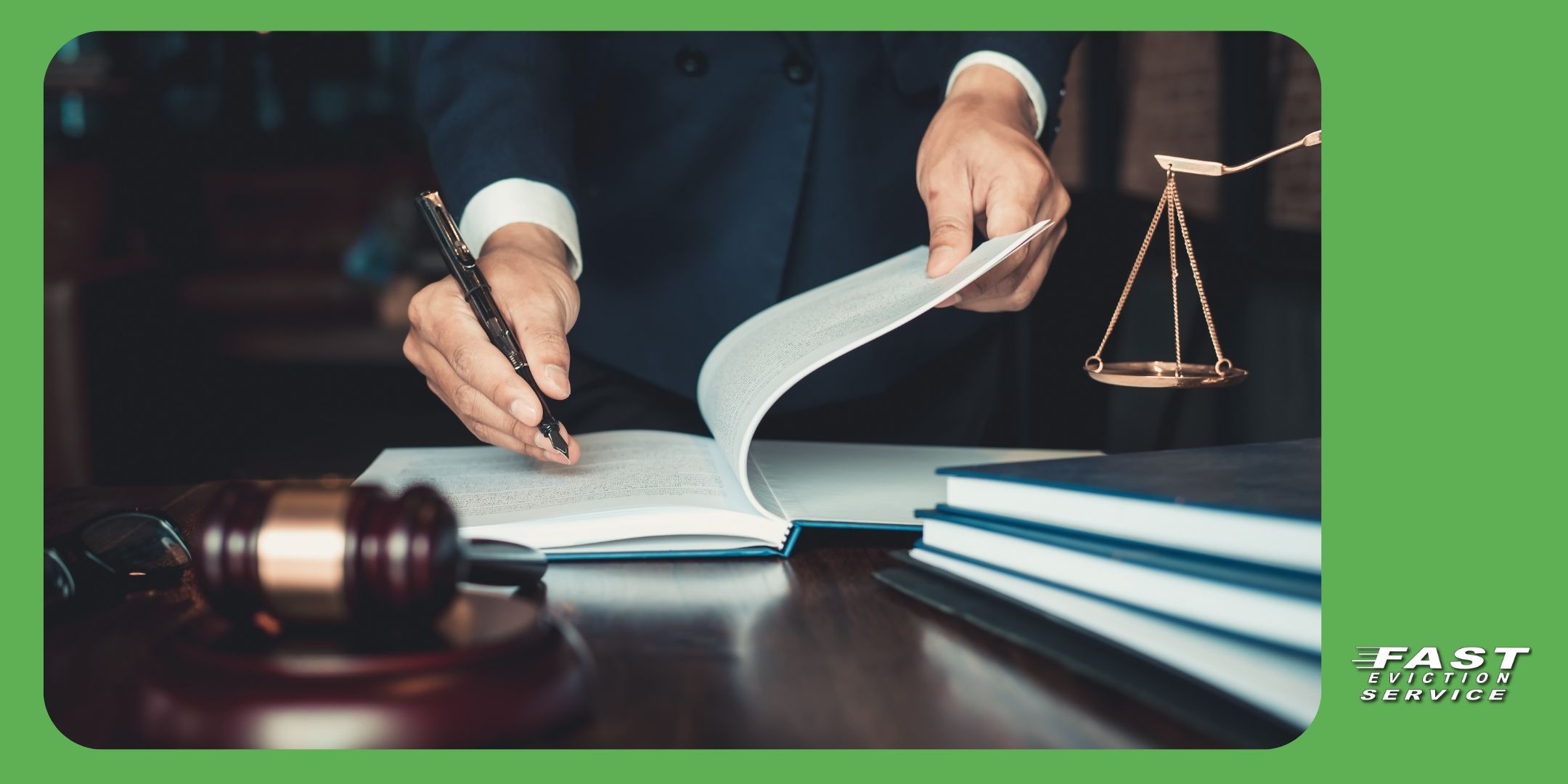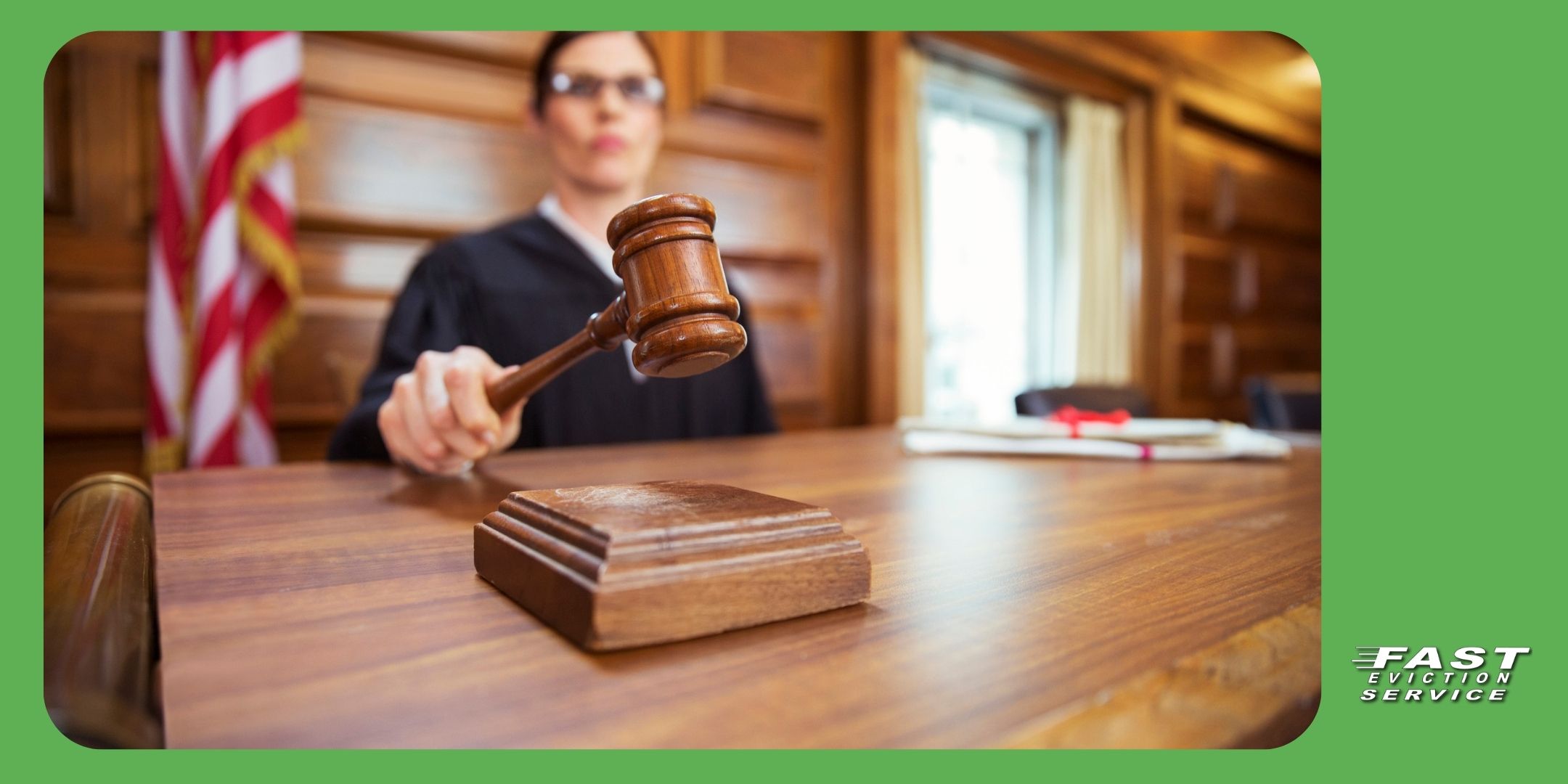Table of Contents
- Watch the SB91 Webinar Replay
- Area Median Income Table by County
- 15 Day Notice Flowchart
- How to apply for SB91 rental assistance
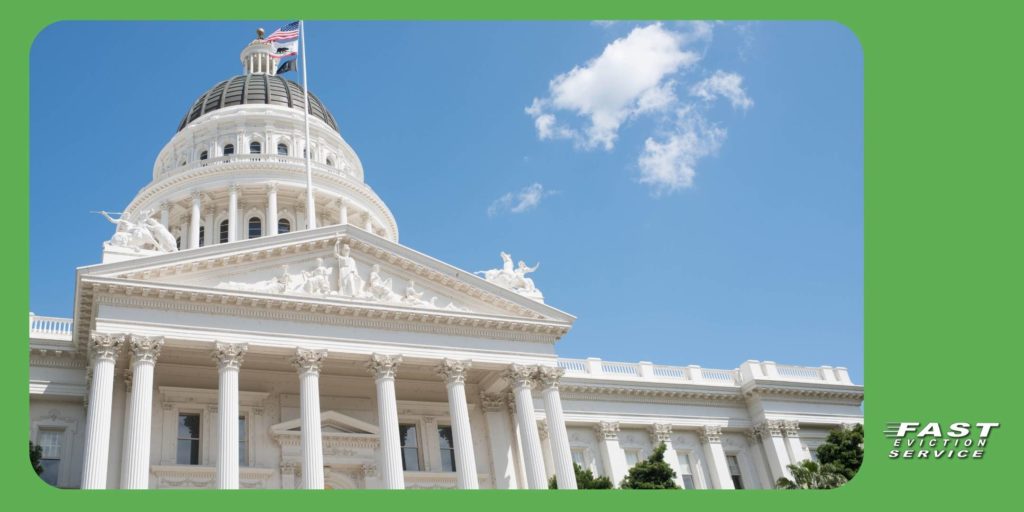
If you need assistance in checking for eligibility, applying for SB91 Rental Assistance, gathering of documents needed to apply, or general help, please contact us!
(1-800-686-8686 or intake@fastevict.com)
What is Senate Bill 91 (SB 91) AKA State Rental Assistance Program?
Governor Gavin Newsom signed SB 91 into law on January 29, 2021, which instantly took effect February 1st, 2021. This new legislation sets the rules for the use of funds allocated to California under the $25 billion federal Consolidated Appropriations Act, 2021, the federal stimulus bill passed by Congress on December 27, 2020, for emergency rental assistance funding. SB 91 also expands the COVID-19 Tenant Relief Act (CTRA), or AB 3088, the state originally passed by the Legislature and signed on August 31, 2020, by the Governor. It extends AB 3088 to June 30, 2021, and enacts additional provisions related to the COVID-19 pandemic for tenants who have suffered COVID-19 related financial distress.
What is considered COVID-19 related financial distress?
COVID-19 related financial distress means any of the following:
- Complete loss of income due to the COVID-19 pandemic.
- Increased out of pocket expenses directly related to performing essential work during the COVID-19 pandemic.
- Increased expenses related to health caused by the COVID-19 pandemic.
- Responsibilities in childcare or having to attend an elderly, disabled or sick family member directly related to COVID-19 pandemic that has limited a tenant’s ability to earn income.
- Increased expenses in childcare or having to attend an elderly, disabled or sick family member.
- Other situations where a tenant’s income has been reduced due to COVID-19
What is COVID-19 Rental Debt?
Under SB91, “rental debt” is considered any unpaid rent or financial obligation that came due between March 1st, 2020 and June 30th, 2021.
SB 91 Eligibility
- Eligible households must meet all of the following criteria to qualify for rental assistance.
- At least 1 household member
- Must qualify for unemployment benefits OR
- Must have suffered total, significant income loss or experienced financial hardship caused by COVID-19.
- At least 1 household member can show high risk of becoming homeless by
- Demonstrating they have past due utilities or have an eviction notice
- Having unsafe living conditions
- Total household income is less than 80% of the local median.
- At least 1 household member
- The rental assistance program will prioritize providing assistance to households who are below the 50% local median income level. Next on the priority list are households that are in communities that have been highly impacted by COVID-19, and then the program will assist all other households who qualify.
- Income levels are determined by the households 2020 income or it can be determined by the household’s monthly income at the time of filing their application.
How to apply for SB 91 benefits
- Landlords can apply for rental assistance benefits on behalf of their tenant. Reminder: the program is based on the tenant’s circumstances.
- You can find more information about how to apply for SB-91 rental assistance here: https://housingiskey.com
How much does the State Assistance Program cover?
- Households can qualify for up to 80% of past due rent that was accumulated between April 1st, 2020 through March 31st,2021.
Does the landlord have to accept the 80%?
- If a landlord accepts the up-to 80% overdue rent payment from the rental assistance program, the landlord must agree to accept this payment as payment in full for the entire overdue balance for the specified period (April 1st, 2020 through March 31st, 2021.) This means that the landlord cannot seek to evict a tenant or sue them in small claims court for the other 20% for this period.
- A landlord can choose not to participate or apply for the rental assistance funds. If the landlord decides to go this route, the tenant can still apply for the funds but can only receive up to 25% of the past due rental debt. The remaining 75% will be converted to consumer debt which can be collected through small claims as of August 1, 2021.
How SB 91 Extends AB 3088
- SB 91 extends AB 3088 protections from January 31st, 2021 through June 30th, 2021. This includes the 25% of rent payment eligible tenants had to make on January 31st, 2021. An eligible tenant must have provided a declaration of COVID financial hardship to their landlord when they received a 15 day notice to pay or quit. SB 91 also extends the 25% requirement from rent due between September 1st, 2020 through June 30th, 2021.
- All AB 3088 notices are no longer valid as of February 1st, 2021.
How SB 91 Extends AB 1482 (Statewide Rent Control)
- SB 91 continues to expand on AB 1482’s just-cause eviction requirements. This means that AB 1482 temporarily extends to all types of rental properties such as single family homes. All tenants are also covered from their first day of tenancy.
Tenant Obligations
- Tenants who do not comply with tenant requirements under SB 91 can still be evicted. If they fail to provide a declaration (and/or documentation when they meet certain income levels) a landlord can file an unlawful detainer. Note: Keep in mind that federal and local ordinances may take precedent and prevent landlords from filing an unlawful detainer. For example, the CDC Federal Eviction Moratorium is in place until at least March 31st, 2021. You must adhere to any local government ordinance in place.
- Tenant declaration letters must be provided to the landlord within 15 days once the 15 Day Notice to Pay Rent or Quit was served.
- The 15 day period a tenant has to provide their financial distress declaration starts the next business day a 15 Day Notice to Pay or Quit is personally delivered and ends 15 days later, excluding weekends and holidays.
- The tenant can deliver their declaration of COVID-19 related financial distress to the landlords by
- personally, if the landlord indicates an address where the declaration may be delivered to in person.
- by e-mail, if the landlord indicates an email where the declaration may be sent.
- by mail, to the address provided by the landlord
- any of the usual methods used to collect rent.
The tenant still owes any unpaid rent to their landlord even after adhering to all of their obligations.
What is considered a high-income tenant?
A tenant is considered a high-income tenant if their annual household income is above 130% of the median income of where the rental property is located. Note: A tenant cannot be considered a high-income tenant if their annual household income is less than $100,000.
What are Tenant Protections un SB91?
Rental debt regarding March 1st, 2020 through August 31, 2020.
If a tenant has experienced COVID-19 related financial distress and has failed to pay part or any of their rent to their landlord between the dates of March 1st, 2020 and August 31st, 2020, a tenant cannot be evicted for failure to pay rent if and when they:
- Sign and return a Declaration of COVID-19 related financial distress to the landlord within 15 days of receiving a 15 Day Notice to Pay or Quit
- The tenant needs to submit one declaration for each 15 Day Notice to Pay or Quit the landlord serves.
- the landlord may serve a single (1) 15 Day Notice to Pay or Quit for several months or separate, individual 15 Day Notices to Pay or Quit for each month of unpaid rent.
Rental debt regarding September 1, 2020 through June 30, 2021.
If a tenant has experienced COVID-19 related financial distress and has failed to pay part or any of their rent to their landlord between the dates of September 1st, 2020 and June 30th, 2020, a tenant cannot be evicted for failure to pay rent if and when they:
- Sign and return a Declaration of COVID-19 related financial distress to the landlord within 15 days of receiving a 15 Day Notice to Pay or Quit AND
- pay at least 25% of each month’s rent due between September 1st, 2020 through June 30th, 2021 before July 1st, 2021.
- The tenant needs to submit one declaration for each 15 Day Notice to Pay or Quit the landlord serves.
- the landlord may serve a single (1) 15 Day Notice to Pay or Quit for several months or separate, individual 15 Day Notices to Pay or Quit for each month of unpaid rent.
Landlord Obligations
- Landlords are required to notify their tenants about SB 91 to any tenant who owes any rent due between March 1st, 2020 through June 30th, 2021. The notice must be served before February 28th, 2021 and a landlord cannot serve any new 15 day notices before then.
- This notice has different language than that of AB 3088, so the new version must be used.
- Landlords cannot charge late rent fees to tenants who have provided their COVID financial hardship declaration under SB 91.
- Landlords cannot charge late rent frees from March 1, 2020 through June 30, 2021 to any tenant who has returned a signed COVID-19 declaration.
- Landlords cannot sell any COVID-19 rental debt (March 1st, 2020 – June 30, 2021)
- Landlords must provide, if requested, a translated version of the Tenant Declaration letter if and when the landlord has provided a translated version of their rental agreement.
Applying payments to rental debt balance
- If a tenant makes an attempt to pay any amount of overdue rent, SB 91 specifies that it must be applied to “prospective” rent. This means it cannot be applied to COVID-19 rental debt (any amount owed between March 2020 through June 2021.)
- Payments may be applied to overdue rent if and when the landlord receives written consent form the tenant.
- A tenant must provide consent in writing to use their security deposit as a form of payment to settle any COVID-19 rental debt (March 2020 through June 2021).
- Tenants may provide written consent to use their security deposit amount to cover any unpaid rental debt.
Reporting on COVID-19 related Rental Debt
- SB 91 provides additional tenant protection by prohibiting landlords, credit reporting and tenant screening companies to use any alleged COVID-19 rental debt as a negative factor while the prospective tenant is being evaluated to rent a property. This means, if you’re a landlord, you cannot state that the tenant failed to pay rent from March 2020 through June 2021.
How SB 91 changes Small Claims Court
- The March 1st, 2021 date for allowing landlords to sue a tenant for overdue rent through small claims court has been extended to August 1st, 2021.
- SB 91 also changes the type of documentation a landlord will need when filing a small claims action that aims at recovering COVID-19 rental debt. Landlords will need to attach to their claim:
- The landlord made an effort to provide information to the tenant about government rental assistance programs.
- Applied for government rental assistance programs on behalf of the tenant.
- Cooperated with the tenant to help them obtain government rental assistance.
SB 91 and Local Ordinances
- Local government eviction moratoriums based on non payment or rent that have been in effect prior to August 19th, 2020 can remain in effect until they expire but cannot be extended.
- Local governments cannot set new non-payment rent eviction moratoriums but can apply other eviction protections such as limit the ability of evicting a tenant based on violations of a lease.
Does SB91 apply to commercial property?
No, SB91 only provides protections to residential rental property.
Some Good News for Landlords
- Landlords who temporarily close an amenity due to compliance with local, state or federal orders won’t be considered to violate the rental agreement.
Fast Eviction Service will update the list of important SB 91 takeaways as more information comes available such as how a landlord and or tenant can apply for COVID-19 rental assistance funds. If you have any questions about SB 91, please contact our office. 1-800-686-8686 or intake@fastevict.com

